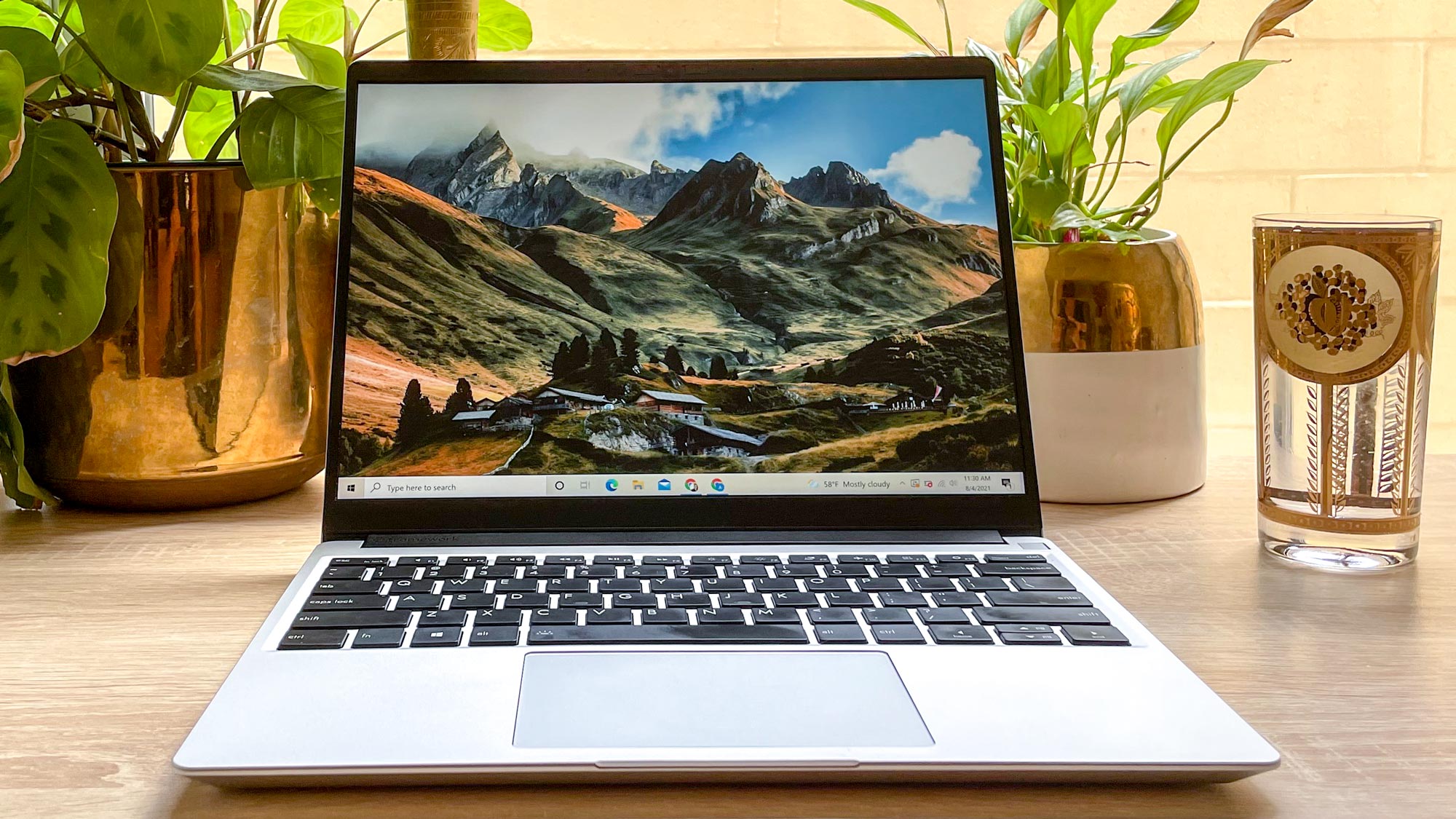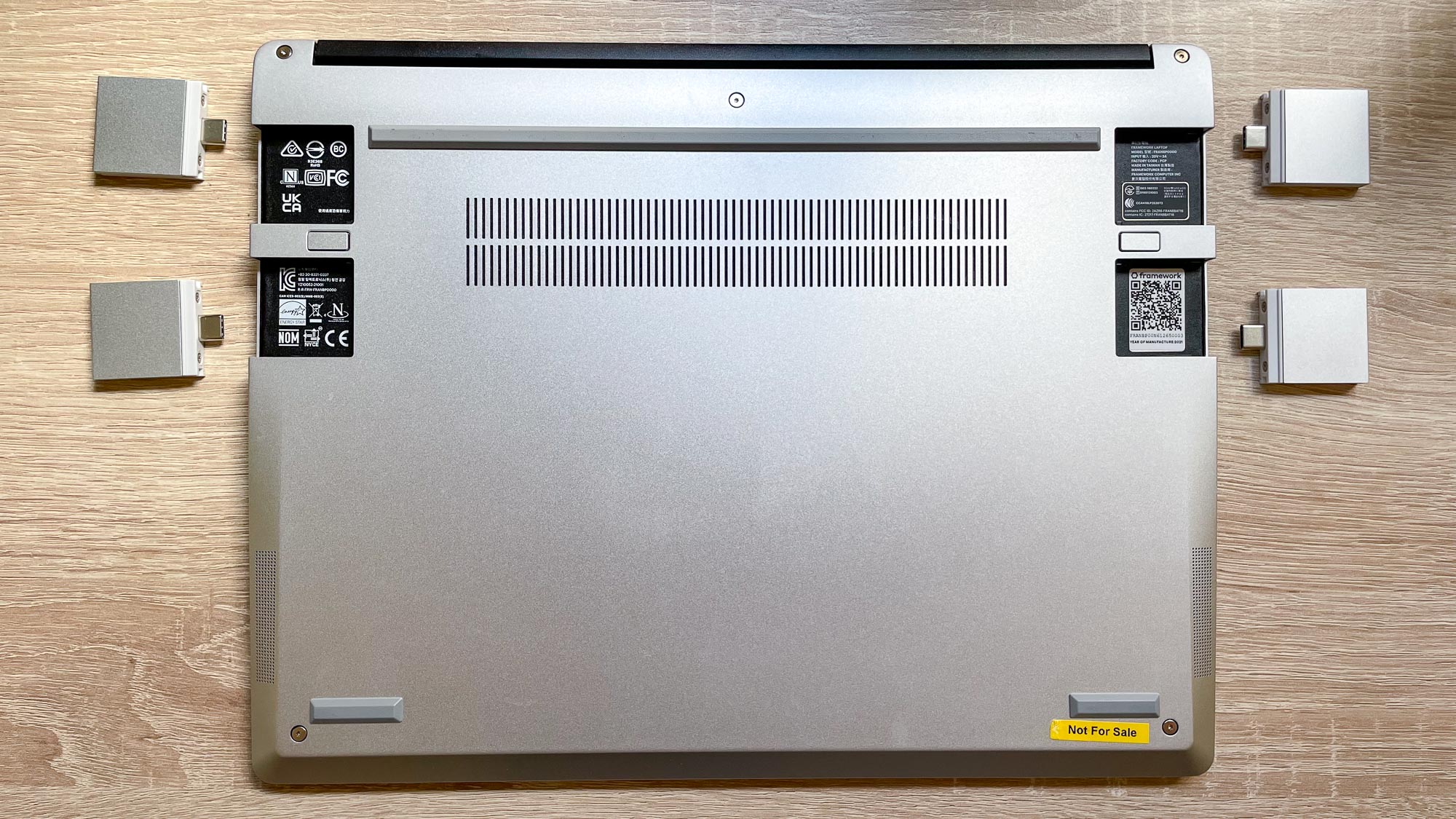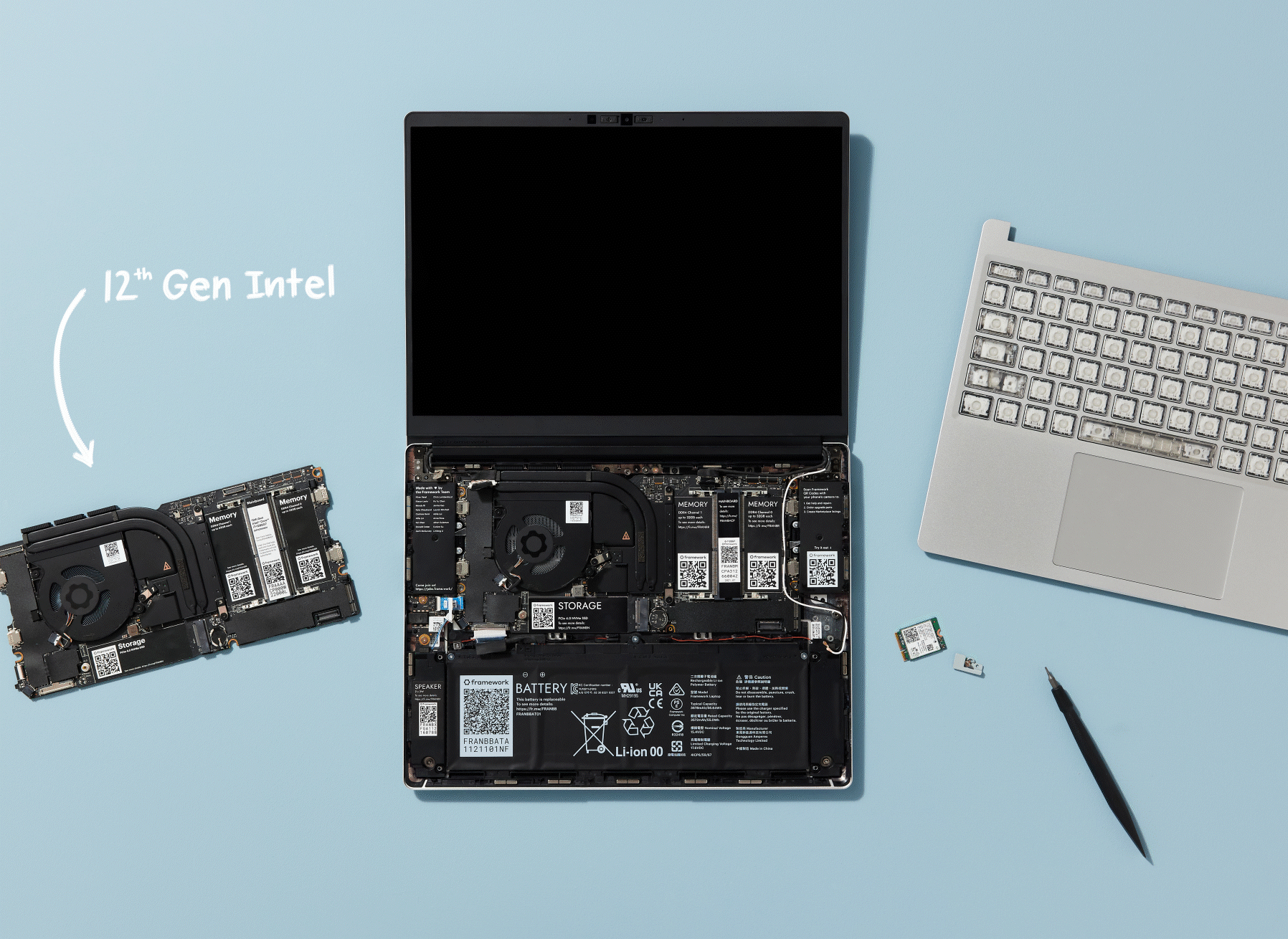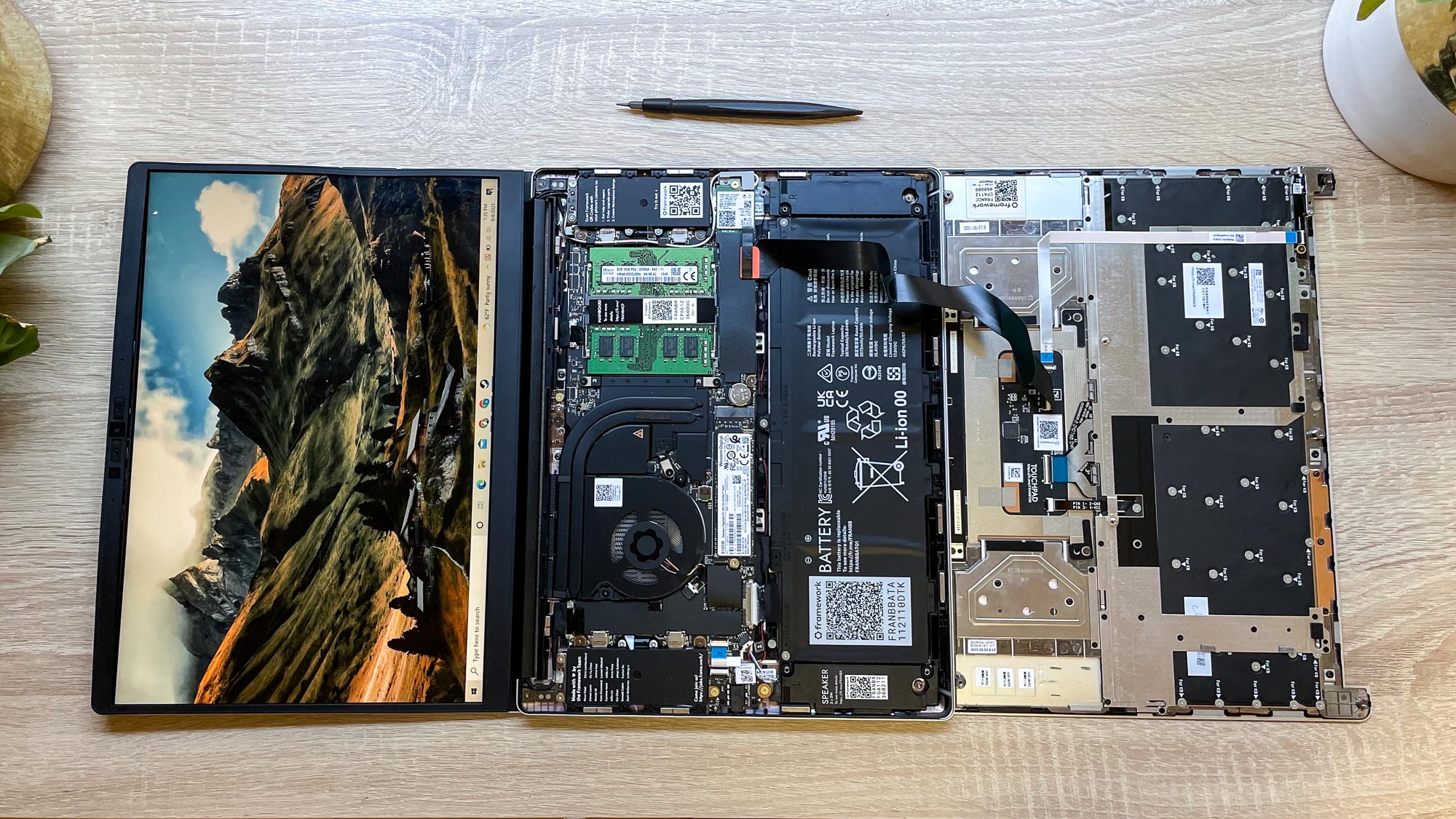The best laptop of 2022 is…this upgradable laptop from 2021
The best laptops of 2022 can't match the value of a Framework

My favorite laptop of 2022 is from 2021, and that's a problem.
I'm thinking of course about the Framework Laptop, which launched in the summer of 2021 as the most user-repairable and upgradeable laptop I've ever seen.
If you've missed our coverage of the company, Framework is the team building a business out of selling laptops you can take apart and repair or upgrade yourself. They design their laptops to be easily opened and put back together, with just a few screws and a screwdriver included with every unit sold. Inside all the parts are labeled, complete with QR codes which link to repair guides as well as places to buy replacement parts. Framework also publishes repair guides specifically so that third-party repair shops can easily repair these laptops if you can't or don't care to.
When I first heard Framework's sales pitch I thought it sounded ridiculous, but not because it was a bad idea. To the contrary, I think it's a great idea, but I didn't believe a modern startup would really design a piece of consumer tech that could be so easily repaired, modified and tinkered with; years of increasingly anti-customer designs and business practices from the likes of Apple, Microsoft et al had ground down my trust in tech companies and their promises.
Framework continues to make one of the best laptops on the market, with a unique selling point no competitor can match."
I was wrong.
When Framework sent us a review unit I scoured it for weaknesses: Performance shortcomings, corners cut with cheap parts, poorly-designed guides, bloatware, the works. I found almost nothing to complain about, and certainly no smoking gun to suggest Framework was anything less than serious about its mission to build a more repairable, recyclable laptop that isn't bulky, ugly or prohibitively expensive.
To the contrary, I found that a fully-assembled Framework looks nearly identical to any other sleek ultraportable at a coffee shop, and its performance and pricing make it competitive with the best laptops from Apple, Dell, Microsoft, Samsung and more. And that's without even mentioning its innovative Expansion Card system. which lets you assemble a collection of Cards and swap them into the Framework's four Expansion Card slots as necessary to equip it with whatever ports or extra functionality you require.

You can read our full Framework review to see how the laptop works and what it's like to crack it open and muck around inside, but the important part is that it made me a believer. I wrote at length about why I think the Framework is the future of laptops, and happily called it my favorite laptop of the year. As 2021 wound down, I eagerly awaited CES 2022 and all the interesting new laptop designs I expected to debut there. Because if Framework could do such a great job of building a laptop that's more owner-accessible than ever while making it seem so easy to repair that even I, a fool (who once soldered components so badly I nearly electrocuted an unwitting colleague) could do it, surely other laptop makers would take note?

Again, I was wrong. 2022 was a good year for laptops, especially if you care about performance and portability. The debut of Intel's Raptor Lake 13th Gen CPUs delivered some significant improvements in both performance and battery life for the laptops which carry them, and I expect even more from the 14th Gen chips when they arrive. Apple's laptops also got a nice upgrade in the company's new M2 chip, which helped catapult the MacBook Pro M2 to the top of our best laptops for battery life thanks to its 18+ hours on a single charge.
But it wasn't a great year if you care about repairing and upgrading the laptop you own. We looked at and reviewed dozens and dozens of laptops that shipped in 2022, and none of them even came close to the Framework in terms of repairability or upgradability. That's a big disappointment for me, and a huge letdown for customers like you who might appreciate the option to replace a part themselves instead of having to pay to send a laptop away for repair.
You deserve better laptops in 2023
Luckily, there were some bright spots this year that gave me hope for the future of the laptop market. Forget about Apple's disappointing DIY repair service, which began offering replacement parts for MacBooks this year at inflated prices with hard-to-read instructions, all but ensuring few would bother. No, the most notable bright spot is Concept Luna, Dell's project to design a more repairable, sustainable laptop. Dell takes a page from Framework with Concept Luna, as the Luna laptop is designed to have modular, easily-replaceable components and be easily opened by the owner using a minimum of screws — a handful instead of tens or hundreds.
It's the most promising sign yet that other companies are learning from what Framework is doing, and Dell is making the additional promise that whatever laptop comes from Concept Luna will be more recyclable and better for the environment than current laptop designs. The company aims to achieve this by doing things like using fewer screws, smaller components, and using a bio-based PCB (printed circuit board) made with flax fiber (in place of plastic laminates) and water-soluble polymer which can be dissolved for easier recycling

But sadly, it's been a year and Concept Luna seems only a bit closer to being a real laptop. In early December Dell gave us an update on its progress to building the future of laptops, and the news was good: Dell's engineers have worked out how to meaningfully reduce the amount of adhesive, cables and screws used in the laptop, cutting the time to disassemble and recycle it significantly. The company also claims to be working out a telemetry system which lets the laptop report on the health of individual components, which could help owners diagnose worn-out components before they fail and replace them in time. That's exactly the kind of useful functionality I'd want to have in a laptop I could open up and swap parts out on, and it's a feature the Framework can't (yet) match.
But of course, Framework is already out here selling laptops that respect their owner more than the competition while Dell is still doing R&D. Heck, they just launched a Chromebook variant of the Framework late this year, and I expect we'll see some more exciting products from them in 2023. If and when Dell brings whatever comes of the Luna project to market, it will be exciting to see how it stokes competition. But in the meantime, Framework continues to make one of the best laptops on the market, with a unique selling point no other laptop can match.
Sign up to get the BEST of Tom's Guide direct to your inbox.
Get instant access to breaking news, the hottest reviews, great deals and helpful tips.

Alex Wawro is a lifelong tech and games enthusiast with more than a decade of experience covering both for outlets like Game Developer, Black Hat, and PC World magazine. A lifelong PC builder, he currently serves as a senior editor at Tom's Guide covering all things computing, from laptops and desktops to keyboards and mice.
